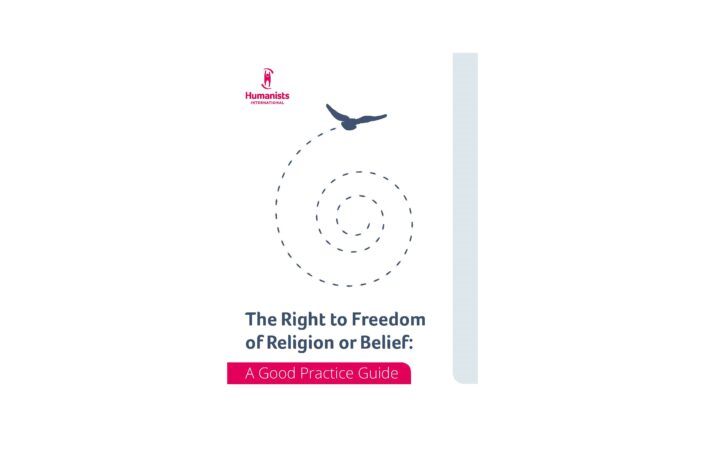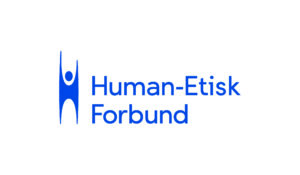
DOWNLOAD
Freedom of Religion or Belief: A Good Practice Guide
File type: PDF | File size: 512 KB
Humanists International presents its Good Practice Guide to the Right to Freedom of Religion or Belief.
This original Guide is intended as a training tool for humanists and human rights advocates on FoRB, including how to resolve the tensions that exist between FoRB and other human rights. To help share the lessons of the Guide, we spoke to humanists from around the world on why FoRB is an essential right for them.
What is Freedom of Religion or Belief? And why it is important? Our FoRB Guide answers these questions in a simple and clear format, to help humanists and human rights defenders all around the world to campaign and defend FoRB in their countries and on the international stage.
Download it now!Freedom of thought, conscience, religion or belief (‘FoRB’) is an incredibly important right for humanists, and for anyone who values the innate ability that all humans have to think and act for themselves.
FoRB protects our capacity to grow, to change our deeply held moral, ethical or philosophical convictions over time, to question dogma and to enrich our understanding of the world.
In recent years, there has been a growing awareness of the influence that religious institutions and beliefs have on politics and social life across the world. With that, has also come increased interest in the right to freedom of religion or belief. Many governments have appointed special envoys to report on FoRB issues, and multilateral initiatives have been launched to promote the right.
Despite the increased attention, FoRB is a misunderstood, under-appreciated right.
There is a considerable movement at the international level to politicize religion and distort FoRB in order to justify discrimination and violations on the grounds of gender, and to pursue a wider anti-rights agenda. This comes from a diverse set of actors, including a range of states, faith-based entities, and civil society advocates, and can be seen across a number of international and regional institutions.
In advocacy, it tends to be a right that is practiced in isolation from other rights and often monopolized by conservative faith-based actors. This has led in turn to some civil society actors being sceptical of FoRB and operating under the false assumption that it serves to protect conservative, patriarchal and discriminatory religious traditions.
Our Good Practice Guide puts the spotlight on FoRB. In it, we offer a clear definition of FoRB as a universal and intersectional right.
A large portion of the Guide is dedicated to mapping out the relationship between FoRB and other human rights, including where the boundaries of FoRB lie. We also explain where to find relevant definitions of the right within international treaties and other documents.
We provide tools to advocates on how to resolve the tensions that exist between FoRB and other rights, particularly when it comes to lobbying around contested issues, such as the ‘right’ to conduct religious protest outside of abortion clinics, or to refuse lawful services to LGBTI people or women, grounds of religious conscience.
It is important to us that the Guide is not simply an academic resource, but a practical resource on how to promote a universal understanding of FoRB, and the benefits to doing so. Our aim is to encourage more and more secular and civil society actors to reclaim and promote a universal understanding of FoRB.
We need to broaden engagement and familiarity with this right, both locally and internationally, in order to strengthen its legitimacy and to allow it to work as intended: in tandem with the promotion of other human rights.
Why is FoRB valued by humanists worldwide?
Check out our playlist of videos!
Why does FoRB matter?
Check out our series of memes!

The print version of the FoRB Good Practice Guide has been produced with the support of Human-Etisk Forbund (the Norwegian Humanist Association).